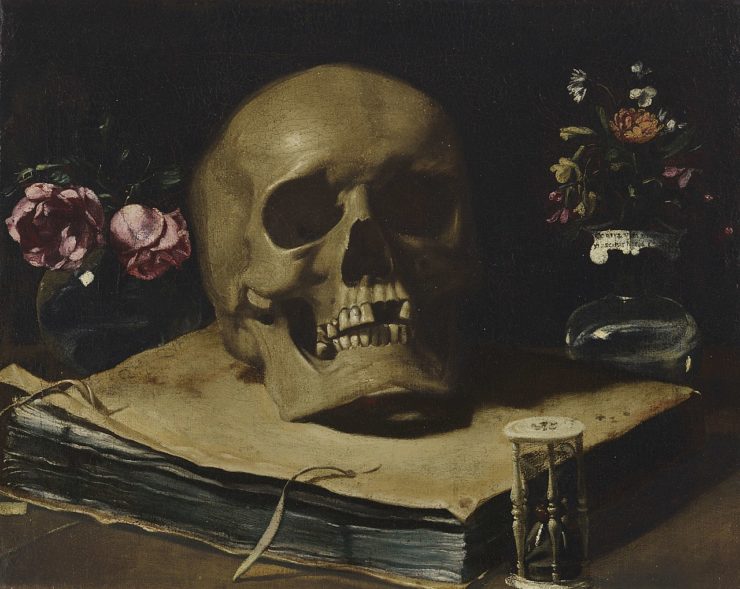It can be difficult to write about what comes after we die. No one really knows, at least no one living. We have hopes, we have dreams about what awaits us all, but the fact remains that we won’t know until our time comes. And yet, as humans, we are curious, even if the topic of death and mortality is still somewhat taboo. But that’s a given, because why would we want to consider something that takes us away from all we know and love? We are driven to survive at all costs, a biological imperative.
And still, that curiosity remains. What comes next?
Nothing? Some form of Heaven? Some form of Hell? We have our beliefs: some born of religion, others coming from our heritage. I consider myself agnostic, but sometimes that almost feels like a copout, an easy way to say I don’t know. Because I don’t. I don’t know what to believe.
Which is why I wrote Under the Whispering Door, an exploration of what might come next. I never set out to answer exactly what that is, only to show that there might be more, regardless of what you believe. When something puzzles me, I write through it, trying to figure out why something puzzles me, and if I can find the answers somewhere. Sometimes it works; other times it doesn’t.
But by the time I finished Under the Whispering Door, I felt a bit of peace. I still may not know what happens after we close our eyes for the last time, but it almost doesn’t matter. If this is the only life I get, if this is my one chance, I want to make the most of it.
Here are five works that deal with the idea of mortality, and what might come next. I hope you enjoy these books as much as I do.
Woke Up in a Strange Place by Eric Arvin
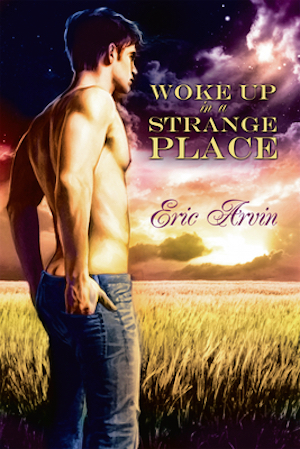
Eric Arvin was a wonderful man. Funny, kind, and oh so patient. He was taken far too soon. The world felt darker after his passing. Those who had the honor of knowing him, of loving him, were better off because of it. I miss him every day.
And man, could he write. His prose is playful when it needs to be, searing when the situation called for it. And his writing prowess is on full display in his wonderful novel Woke Up In a Strange Place. The story follows the character of Joe, who wakes up in a field of barley without any memories. Two companions—his soul guide Baker, and a familiar being called the Stranger—guide him through the mystery of why he woke up where he did. At its heart, the story is one of love, of acceptance, of searching for what was lost. Everyone should read this book, and know that Eric poured everything he had into it. I’ve rarely read an author who understood humanity as well as Eric did.
The Lovely Bones by Alice Sebold
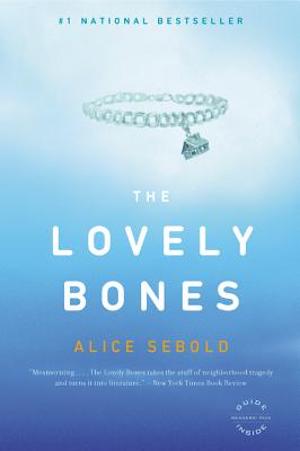
A different take on what comes next. The novel follows a girl named Susie Salmon who is murdered at the age of fourteen. She finds her heaven, but worries about those left behind: her family. Sebold’s prose is lovely and kind, even given the heavy subject matter. This novel is heartbreakingly wonderful look at the relationships between parents and their children, and what they do in order to protect each other. It’s also an unflinching look at grief, both Susie’s and her community reeling from her murder. There is a film version of this novel helmed by Peter Jackson (of Lord of the Rings fame), but to me, it loses something in the translation. In this case, the book is much, much better than the adaptation.
Taproot by Keezy Young
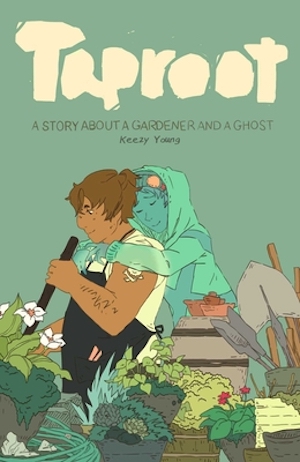
A delightful queer graphic novel about a young man named Hamal, and the ghosts he can see. One in particular, Blue, may or may not be the love of his life. While the story is wonderful in its own right, the art takes it to another level entirely. Each panel is lovingly crafted, a perfect medium for telling such a profound story of love and loss, and the lengths people will go to in order to fight for those they care about.
What Dreams May Come by Richard Matheson
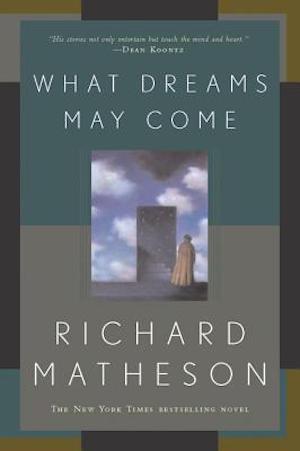
If you’ve heard of this book, chances are because it’s from the forgettable film version starring Robin Williams. While the film itself is gorgeous to look at, it—like The Lovely Bones film—loses something in translation. Though primarily known as a horror author, Matheson’s work in this story is a powerful thing. Matheson himself said that he thought What Dreams May Come was the most important book he’s ever written, saying, “It caused a number of readers to lose their fear of death—the finest tribute any writer could receive.”
The novel follows a man who dies in a car accident, and goes to a place known as Summerland, a version of Heaven where he can have and do anything he wants. In her grief, his wife dies by suicide, and is sent to a “lower realm” which is a version of Hell. What follows is a rescue mission to save her. Though some will take issue—and rightly so—with the idea that those who die by suicide aren’t destined for a Summerland of their own, Matheson writes with heart and understanding. And the ending? Perfection.
On Life After Death by Dr. Elisabeth Kubler-Ross
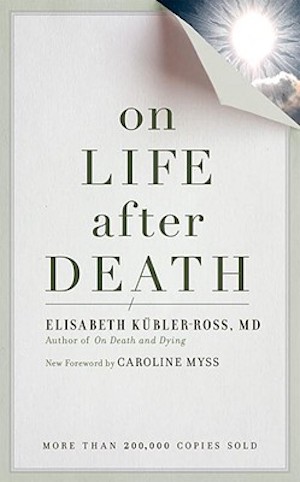
This is a work of non-fiction. If you don’t know Dr. Kubler-Ross by name, chances are you’ve heard of her work in the field of death and dying. In 1969, she introduced the Kubler-Ross model, also known as the five stages of grief: anger, denial, bargaining, depression and acceptance. Later, she would add to it, saying that it wasn’t meant to be a linear process where everyone would hit each step. Fair criticism has been levied at the model, saying that it doesn’t take into account how a person’s culture could impact the grieving process.
Dr. Kubler-Ross wasn’t the world’s greatest writer, but the four essays in this book are elevated by the subject matter: her work in hospice care dying patients, and the phenomenon of near-death experiences. While much of what she’s written here is anecdotal, it still provides a measure of comfort for those seeking it.
She writes, “Death is but a transition from life to another existence where there is no more pain and anguish. All the bitterness and disagreements will vanish, and the only thing that lives forever is love.”
Whether or not that’s true is obviously up for debate—because again, who can really know until they experience it for themselves?—it’s a lovely thought.
Buy the Book
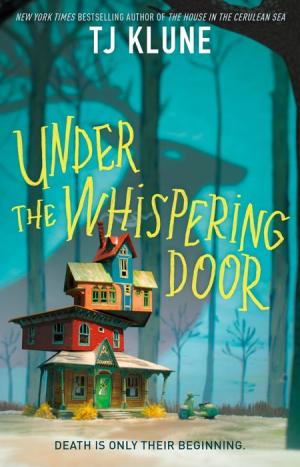

Under the Whispering Door
TJ Klune is a Lambda Literary Award-winning author (Into This River I Drown) and an ex-claims examiner for an insurance company. His novels include The House on the Cerulean Sea and The Extraordinaries. Being queer himself, TJ believes it’s important—now more than ever—to have accurate, positive, queer representation in stories.










